Premium Only Content
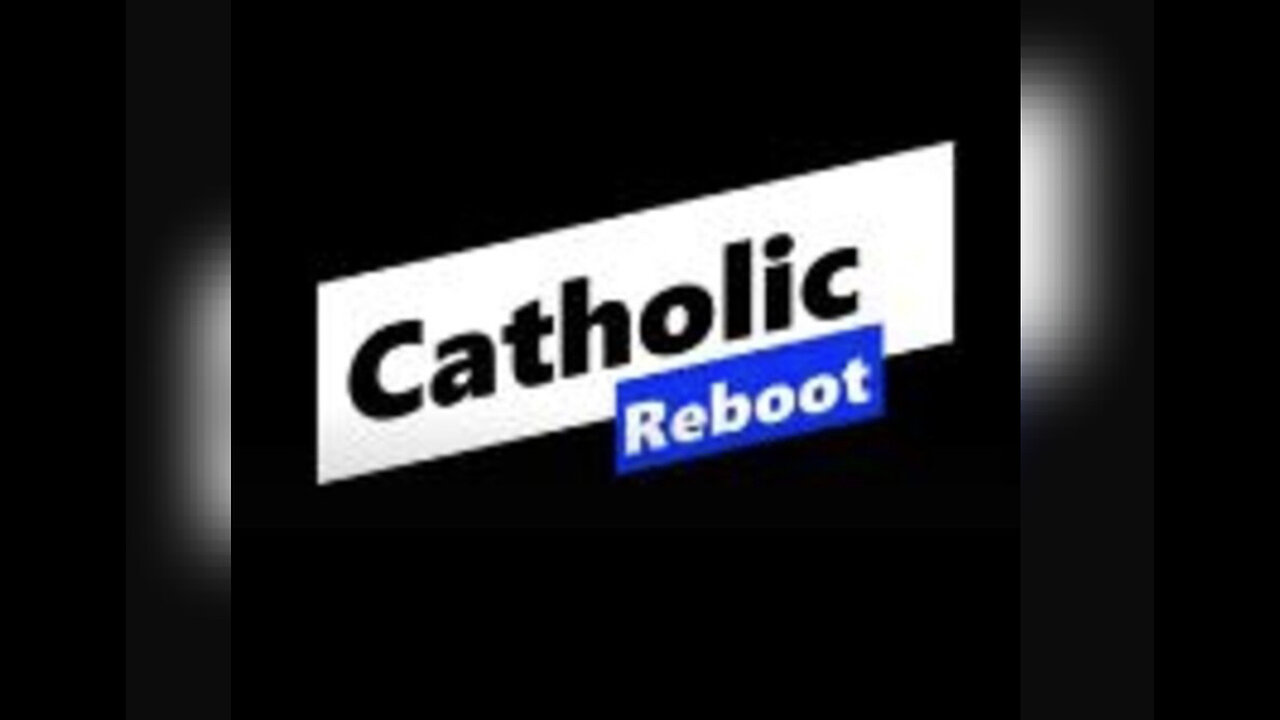
Episode 2214: Embracing Tradition: A Return to Timeless Truths
Embracing Tradition: A Return to Timeless Truths
Welcome back to Catholic Reboot where we delve into the timeless truths of the Catholic faith and explore their application in our modern world. In today’s episode, we will explore the essence of Traditionalism, a perspective that seeks to uphold the wisdom of our ancestors and apply it to our contemporary society. Join us as we discuss the fundamental principles of Traditionalism, its critique of modern ideologies, and its vision for a society rooted in truth, duty, and righteousness.
The Heart of Traditionalism: The Only True Catholic
Defining Traditionalism
"The best way, I have found, to sum up my own views of society and politics is to call myself a Traditionalist. I was rather surprised to learn that this term has actually begun to be taken up by others who more or less share my views (though some prefer ‘reactionary’), and if it is, it seems only right to try to give a brief explanation of the perspective for those who have not yet had much exposure to it." David Breitenbeck
Traditionalism, in the context of our Catholic faith, seeks to preserve and restore the moral and philosophical insights of our forebears. This perspective challenges the notion that modern advancements necessarily lead to greater understanding and liberty. Instead, it argues for a critical reassessment of historical wisdom, especially that which aligns with the teachings of the Church.
The Rejection of the Whig Interpretation of History
The Whig interpretation of history is a historiographical perspective that views history as a progressive journey towards ever-greater liberty, enlightenment, and improvement, particularly emphasizing the development of parliamentary democracy, constitutional monarchy, and individual rights. This interpretation, named after the Whig political party in Britain, suggests that human history is characterized by a linear and inevitable march towards modern liberal democracy and rationalism.
Sharon: Okay Walt what is Historiographical?
Walt: Historiographical analysis examines different interpretations of a particular historical event, the evolution of historical thought over time, or the influence of cultural, political, and social factors on historical writing. Essentially, it’s the study of how history itself has been recorded and understood across different periods and by different historians.
But back to the Whig interpretation.
Key aspects of the Whig interpretation include:
Progress and Improvement: History is seen as a story of progress, where humanity moves from darkness and ignorance to light and knowledge, particularly through the development of science, rationality, and liberal political institutions.
Teleological View: It often implies that historical events and figures should be judged based on how much they contributed to this progress. For instance, events like the Renaissance, the Reformation, and the Enlightenment are seen as pivotal moments of advancement towards modernity.
Liberal Bias: There is a tendency to view liberal democracy and constitutional government as the ultimate form of human political organization. Non-liberal or non-democratic societies are often seen as less advanced or less legitimate.
Selective Emphasis: The Whig interpretation tends to emphasize historical events and figures that align with its narrative of progress and tends to downplay or criticize those that do not fit this narrative.
This perspective was prominently criticized by historian Herbert Butterfield in his book "The Whig Interpretation of History" (1931), where he argued that it imposes a presentist and teleological bias on the study of history, distorting the complexities and nuances of the past.
"Traditionalism fundamentally rejects the Whig interpretation of history, namely that mankind lived for age upon age in superstitious ignorance, which through the dawning light of reason, he emerged about the Renaissance and continues on an upward trend to ever-greater liberty and understanding. The Traditionalist would say that there would be nothing strange in reading Medieval thinkers and judging that they were actually correct and their successors in the so-called ‘Enlightenment’ were wrong." David Breitenbeck
From a Catholic perspective, the Whig interpretation of history overlooks the profound contributions of Medieval Christian thinkers like Thomas Aquinas. Traditionalists value the intellectual and spiritual heritage of the Middle Ages, recognizing that the pursuit of truth and understanding was as robust and sophisticated then as now, if not more aligned with eternal truths.
Timeless Truths vs. Enlightenment Relativism
"The fundamental Traditionalist principle is that truth, which includes morality, is both knowable and unchanging. The Medievals were not necessarily right, but neither were they necessarily wrong. And the men of the ‘Enlightenment’ were not necessarily wrong, but neither were they necessarily right. They are both shown to be correct or mistaken on the exact same grounds." David Breitenbeck
In Catholic doctrine, truth is immutable and grounded in the divine order established by God. Traditionalism rejects the relativism introduced by the Enlightenment, which often leads to moral ambiguity. Instead, it upholds that truth and moral law are consistent across time, as taught by the Church.
The Fallacy of Religious Neutrality
"The Traditionalist rejects the idea of official ‘neutrality’ on religious and moral matters the idea that there is or can be a purely secular government. The reason is that laws and principles of government, including the principle of religious neutrality itself, must have some form of justification, which in turn requires a system of value and an understanding of the nature of the world."
David Breitenbeck
A Catholic Traditionalist perspective recognizes that true neutrality in moral and religious matters is impossible. Every legal system is based on an underlying set of values and beliefs. Hence, a government devoid of religious foundation ultimately promotes a hidden agenda that may be at odds with Christian principles.
Conflicting Definitions of Freedom
"Another point where the Traditionalist would reject Liberalism is on the question of freedom. For the Liberal, freedom is the highest good, and he would define freedom along the lines of, ‘the right to do whatever you like provided you do not interfere with another person’s rights.’" David Breitenbeck
Catholic Traditionalism views freedom not as an end in itself but as a means to pursue the good. True freedom is found in living according to God’s will and fulfilling our moral duties. This contrasts with the liberal notion of freedom, which often leads to moral relativism and the erosion of objective truths.
Monarchy vs. Democracy
"Traditionalist societies are not necessarily monarchical; republics or mixed systems are also common... But monarchies tend to be typical, for the very good reason that it reflects the natural structure of the family: just as the father is head of the household, so the king is head of the nation, and in almost the same way." David Breitenbeck
From a Catholic Traditionalist view, monarchy can reflect the natural and divine order, mirroring the family structure ordained by God. This hierarchical system emphasizes duty and service over the individualistic tendencies seen in modern democratic states.
Traditionalism Today
"But regardless of whether a truly traditionalist form of society will ever come to be again, I think the principles the primacy of truth and righteousness, duties before rights, the grounding in reality and so on are ones that we all desperately need to recapture and put into practice." David Breitenbeck
Even if a fully traditionalist society seems unattainable today, the principles of Traditionalism truth, duty, righteousness are crucial for personal and societal well-being. Catholics are called to witness to these truths, living them out in our daily lives and advocating for their recognition in the public sphere.
Conclusion
Thank you for joining us on this journey into the heart of Traditionalism from a Catholic perspective. We hope this episode has inspired you to reflect on the timeless truths of our faith and consider how they can guide us in these turbulent times. Remember, embracing tradition is not about clinging to the past, but about grounding ourselves in the eternal truths that lead to a just and righteous society. Until next time, may God bless you and keep you steadfast in faith and tradition.
-
 LIVE
LIVE
Revenge of the Cis
3 hours agoEpisode 1429: Catch And Release
2,210 watching -
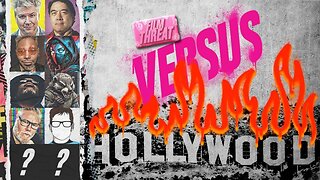 LIVE
LIVE
Film Threat
7 hours agoVERSUS: HOLLYWOOD IS STILL ON FIRE | Film Threat Versus
177 watching -
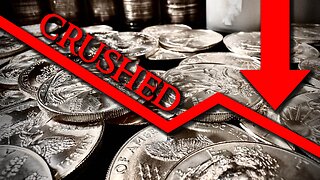 12:33
12:33
Silver Dragons
2 hours agoSilver Price Crushed Today - NEW TREND STARTING?
2.27K -
 1:02:03
1:02:03
In The Litter Box w/ Jewels & Catturd
21 hours agoRecall Newscum & Bass! | In the Litter Box w/ Jewels & Catturd – Ep. 718 – 1/13/2025
38.7K20 -
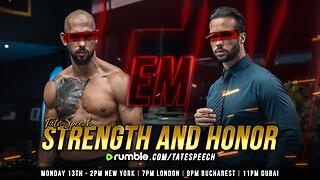 3:19:58
3:19:58
Tate Speech by Andrew Tate
9 hours agoEMERGENCY MEETING EPISODE 101 - STRENGTH AND HONOR
129K63 -
 1:48:09
1:48:09
The Quartering
5 hours agoLA Fires Are About To Get Way Worse, Trump Vs Vance On J6 Pardons, Brett Cooper Bombshell & More
83.1K38 -
 LIVE
LIVE
Dr Disrespect
6 hours ago🔴LIVE - DR DISRESPECT - MARVEL RIVALS - TOP 500 IN THE WORLD
2,936 watching -
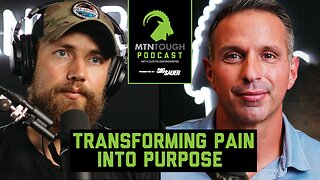 1:05:49
1:05:49
MTNTOUGH Fitness Lab
7 hours agoDamon West: How Faith and Mental Toughness Helped Me Escape Prison | MTNPOD #99
6.49K -
 1:43:05
1:43:05
The Criminal Connection Podcast
7 hours agoIAN MCCRANOR: World Champion Karate Doorman CRAZY Life Story, Mob Hits GONE WRONG & Video Game Star!
5.58K1 -
 38:25
38:25
otisframpton
2 hours agoPROCREATE DREAMS Animation Demo - Part 4 - Lighting & SFX!
16.3K